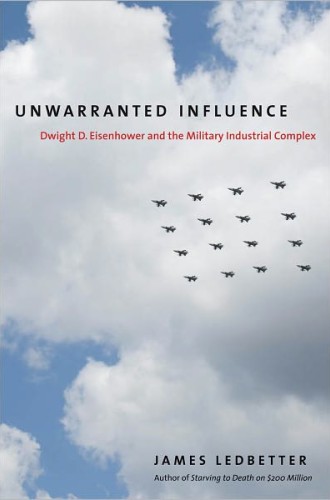Unwarranted Influence, by James Ledbetter
The most famous farewell addresses in the history of the American presidency are those delivered by two of the greatest military leaders to occupy the office: George Washington and Dwight Eisenhower. Both warned of the threat that military power and its interests posed to the nation. Though Washington's address is best remembered for his admonition against entanglements in European alliances and conflicts, the first president also urged Americans to conduct their affairs in a way that would allow them to "avoid the necessity of those overgrown Military establishments, which under any form of Government are inauspicious to liberty, and which are to be regarded as particularly hostile to Republican Liberty." Eisenhower's speech is recalled above all for its cautionary words about the dangers of a "military-industrial complex."
We have long had a fine book on Washington's speech, Felix Gilbert's To the Farewell Address (1961). Now James Ledbetter has given us an excellent study to mark the 50th anniversary of Eisenhower's farewell.
Eisenhower delivered the speech on January 17, 1961, three days before leaving office. Recently discovered evidence indicates that this was not a hastily prepared event. Eisenhower himself proposed a farewell address in late May 1959, though its themes were not hammered out by his speechwriters, led by Malcolm Moos and Milton Eisenhower, until the fall of 1960. It remains unclear which of them came up with the phrase "military-industrial complex," but Ledbetter demonstrates that the concept had a long pedigree.





